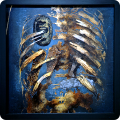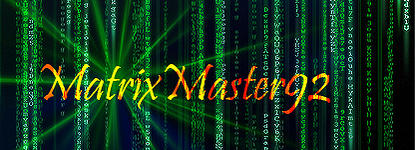i've never had a lucid dream were i got the chance to touch something yet, |
|
Results 1 to 14 of 14
 9Likes
9Likes
Thread: How can you feel stuff in your dreams ?
Hybrid View
-
10-05-2010 11:35 PM #1
How can you feel stuff in your dreams ?
-
10-05-2010 11:42 PM #2
Well in my regular dreams when swimming, I can feel the water and sensation I get when water goes up my nose. I guess your mind uses it knowledge of what things feel like in the real world and use then for lucid dreaming. Just a guess.
Every passing minute is another chance to turn it all around.
(SP)12 (FA)10 (DEILD Chain)1 (DILD)6 (DEILD)2 (VILD)2
-
10-05-2010 11:53 PM #3
yeah that's what my guess is too,
just curious if anyone knows how it works
and how the sensations are created
-
10-06-2010 12:20 AM #4Bird Brain Achievements:









- Join Date
- Oct 2009
- LD Count
- Lost count.
- Location
- Vancouver, BC.
- Posts
- 6,337
- Likes
- 2065
- DJ Entries
- 212
I've felt things many times in dreams; a few nights ago in a lucid, I felt acceleration and wind in my face as I flew across a road. I've also felt stucco on houses, bricks, carpet, objects, and even felt grass. Not to mention various objects. It's very realistic.
We all live in a kind of continuous dream. When we wake, it is because something,
some event, some pinprick even, disturbs the edges of what we have taken as reality.
Vandermeer
SAT (Sporadic Awareness Technique) Guide
Have questions about lucid dreaming? DM me.
-
10-06-2010 12:26 AM #5Close your eyes



- Join Date
- Sep 2010
- LD Count
- 200+
- Gender

- Location
- Luxembourg
- Posts
- 343
- Likes
- 581
- DJ Entries
- 115
For me, as long as the dream is quite vivid, touching things feels very realistic.
It sometimes feels different compared to real life, but realistic nonetheless.
The best example would be if I rub my hands to stabilize my dream, it never feels exactly like in real life, but the sensation is quite strong.
I recently had the opportunity to drink a cup of champagne in a dream, and it tasted exactly like it's real world counterpart.
I could even clearly feel the bubbles in my throat as I was drinking, it was quite an interesting experience since it was the first time I drank something in a dream.
-
10-06-2010 12:33 AM #6Luminescent sun chaser Achievements:










- Join Date
- May 2007
- LD Count
- 400ish
- Gender

- Location
- The World That Never Was
- Posts
- 4,175
- Likes
- 3220
- DJ Entries
- 554
All of your senses in waking life occur because of your brain. Your brain is still working while you're asleep. Certain parts of the brain are at rest, but in general, theres isn't a feeling in waking life that wouldn't be able to be simulated in a dream. To understand how all of those things specifically operate, just look into information on how the brain works.
-
10-06-2010 01:15 AM #7
The Power of the Mind
Since it's easy to say that a lot is processed in the brain, your mind can recreate sensations and redirect them to the appropriate senses. I used to have two cats, who would unfortunately scratch me on occasion.
Around a week or two ago, I was scratched by a tiger in my dream, and I could feel the pain; the interesting thing was that it didn't feel like a cat scratch, my brain understood it was a big cat and magnified the pain.
Since the brain is in control, it seems like it is intelligent enough (weird to say a brain is intelligent) to recreate scenarios based on your own former experiences. However it should still be stated that in the end, this is all just recreation, therefore the chance of an oddity still exists.
-
10-06-2010 01:51 AM #8Banned


- Join Date
- Oct 2005
- Gender

- Posts
- 4,571
- Likes
- 1070
Your eyes sense light, but they don't provide you your vision. Your ears detect sound but they don't provide you your hearing. It is your brain that assembles the information they provide into perception. The only difference between your waking perceptions and ones in a dream is the source of the input. The perceptions themselves function in the exact same way. The fact is that your brain is always synthesizing these perceptions. We don't have direct access to reality, we only see it through the filter of our perceptions. What you see, hear and feel is your brain's "map" it has drawn based on the information it has received from your sensory organs. A "map" can be drawn from sensory input as well as from imagination.
-
10-06-2010 02:05 AM #9
-
10-06-2010 02:14 AM #10Close your eyes



- Join Date
- Sep 2010
- LD Count
- 200+
- Gender

- Location
- Luxembourg
- Posts
- 343
- Likes
- 581
- DJ Entries
- 115
-
10-06-2010 02:23 AM #11
-
10-07-2010 05:21 AM #12Dream Architect


- Join Date
- Jul 2010
- LD Count
- 3
- Gender

- Location
- Illinois
- Posts
- 151
- Likes
- 6
- DJ Entries
- 60
Akono put it very well. You have to almost look at it like this:
What is waking life? It is just you being conscious and aware of what is going on around you. Right? Everything gets fed through your senses, your brain, and from there your body/mind reacts accordingly. It stands to reason that inside of a lucid dream your brain is reacting as if it were "waking life" in that things will feel how the brain expects them to feel. Nothing is external, to a point. It's all in your head.As children we believe anything is possible. As adults, we need to remember it.
-
10-07-2010 08:31 PM #13
The absolute realism that is possible in LDs is one of the things that is so exhilerating for me. When I first become lucid in a dream I try to anchor by looking, touching, listening etc. Getting down on my knees and rubbing my hand across the grass and having it feel totally real but knowing it is my mind creating it is a mind-blowing experience.
-
10-08-2010 07:57 PM #14Get Unplugged



- Join Date
- Apr 2010
- LD Count
- 131
- Gender

- Location
- Multiverse constuct 7.3 x 10^317, Virgo Supercluster, Local Cluster,Milky Way Glxy, Sol system,Earth
- Posts
- 203
- Likes
- 20
- DJ Entries
- 3
Those are some excellent explanations up there guys. I really like how Mark said that the brain can create reality while recieving imput from your senses or your imagination. Makes me wonder, what really is the difference?
Personally I have felt a chair in a LD a few weeks ago and it felt scratchy. Just as one would have in real life. What if there really is no difference? *brain melts again*.
"My body may be bound by gravity, but my imagination knows no limits." -Me
-start date: 3/31/10, current LD count: 131
Goals: [X] successfully stabalize a LD, explore dream world, and learn to fly
[ ] Discover the source of consciousness, find my spirit guide, experience absolute cosmic unity
Similar Threads
-
Remembering Stuff From Earlier Dreams Inside Dreams?
By pawstalker in forum General Dream DiscussionReplies: 9Last Post: 04-25-2011, 02:00 AM -
The Stuff of Dreams - PBS
By Dream Guide Team in forum Lucid Dreaming NewsReplies: 1Last Post: 05-14-2010, 11:49 PM -
Feel only dreams?
By WolfDreamer in forum General Lucid DiscussionReplies: 12Last Post: 02-02-2009, 12:15 AM -
Dreams don't feel like they should
By Joo52 in forum Introduction ZoneReplies: 5Last Post: 12-04-2005, 07:38 PM -
Can you feel in dreams?
By Firrox in forum General Lucid DiscussionReplies: 9Last Post: 08-19-2004, 08:36 PM




 LinkBack URL
LinkBack URL About LinkBacks
About LinkBacks




 Reply With Quote
Reply With Quote


Bookmarks